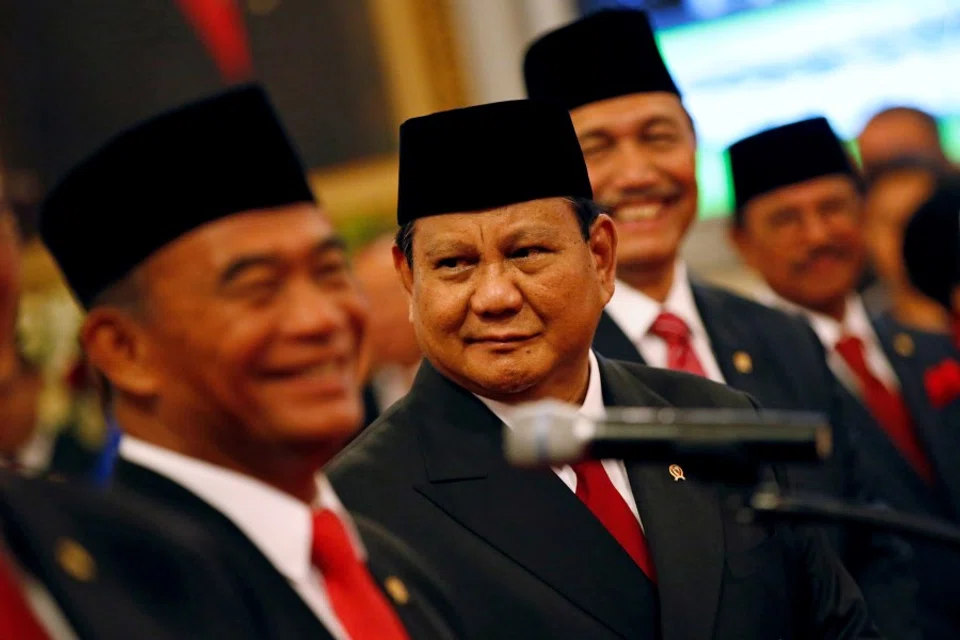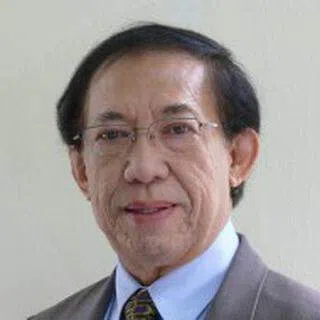After a 20-year ban, why was Indonesia's Prabowo invited to the US?
Indonesian Defence Minister Prabowo Subianto's visit to Washington DC has raised many eyebrows and questions, says Leo Suryadinata. Is the US worried about Indonesia leaning too much towards China?

To the surprise of many, Indonesian Defence Minister Prabowo Subianto was invited by Mark Esper, the American Secretary for Defence, to visit the US from 15 to 19 October. Many observers are curious as to why Prabowo was invited. He had been banned from entering America for about 20 years due to alleged human rights violations. What did Washington hope to gain from this invitation?
Prabowo is a former son-in-law of former President Suharto. He was accused of committing human rights violations at the end of the Suharto regime. The US State Department even singled out Prabowo, then head of the elite special forces, as responsible for human rights violations in the US Department of State Country Report on Human Rights 1009 - Indonesia.
When he wanted to visit the US in 2000 to attend the graduation ceremony of his son in Boston, he was denied a visa by the Clinton administration. In 2012, Prabowo revealed that he still was being refused a US visa. Only in October 2020, in an about-face, the Trump administration invited Prabowo to visit the US as defence minister, a position he has held since October 2019. Amnesty International and six other human rights organisations lodged a strong protest, asking Secretary of State Mike Pompeo to rescind the invitation.
The US Department of Defence's Military and Security Developments Involving the People's Republic of China report released last month stated that China has likely considered establishing a military base in Indonesia.

Why did the US suddenly change its policy? On the surface, it would appear that this had a lot to do with the increased tension in US-China relations. But there is a deeper reason. According to Hikmahanto Juwana, a professor at the University of Indonesia, there is a strategic consideration behind the invitation. The US Department of Defence's Military and Security Developments Involving the People's Republic of China report released last month stated that China has likely considered establishing a military base in Indonesia. As Jakarta is increasingly dependent economically on Beijing, the fear is that it might align itself more closely to China strategically as well.
As Indonesia is an important country in the Indo-Pacific region, it is considered a critical node in the US Indo-Pacific Strategy. Therefore, Washington has an interest in pulling Jakarta (and Prabowo) away from Beijing. Hence the invitation to Prabowo.
Indeed, Indonesia-China economic relations have been intensifying since the signing of a bilateral comprehensive strategic partnership in 2013. China is Indonesia's largest trading partner and investments from China in Indonesia have increased significantly, especially during the Jokowi administration.

Both China and Russia invited Prabowo to visit their countries respectively. Despite the issue of overlapping claims in the Indonesian exclusive economic zone in the northern part of the Natunas, Prabowo visited Beijing in mid-December 2019 at the invitation of his Chinese counterpart. This visit though did not prevent the repeated incursions of Chinese fishing boats and coast guard vessels into Indonesia's Natuna waters from the end of December 2019 to early January 2020.
These incursions led to a strong protest from Indonesian Foreign Minister Retno Marsudi, while Prabowo was reported to have commented that Jakarta should not be too harsh on Beijing because China is a "friend country". Coordinating Minister for Maritime Affairs and Investment Luhut Pandjaitan, who oversees China's investments in Indonesia, concurred that the Natuna waters' incident should not be "exaggerated".
When Washington invited Prabowo, he accepted happily, commenting that the US is an important country and he had to visit that country.
It was later reported that Indonesia had received pandemic-related assistance from China. In March 2020 Indonesian military aircraft carried medical equipment from China. In September 2020, China's Defence Minister Wei Fenghe met with Prabowo in Jakarta and discussed Covid-19 pandemic mitigation plans and bilateral cooperation in the defence industry and education sectors.
When Washington invited Prabowo, he accepted happily, commenting that the US is an important country and he had to visit that country. His spokesperson said that the visit was to foster closer military cooperation. Indeed, military cooperation between the two countries, despite the banning of Prabowo from entering the US, has remained close.

Indonesia is looking to replace its obsolete military equipment in phases. Jakarta was reported to have looked at Russia and Western Europe as the sources for such equipment. According to a report, Prabowo discussed longstanding plans to buy Russian Sukhoi fighter jets during his visit to Russia in June. Another source indicated that Indonesia is interested in purchasing American F-35 fighter jets instead. However, Jakarta is not sure whether it would be able to get the jets as Indonesia is not a US ally. The joint statement released by the US Department of Defense for Prabowo's visit commits the US to support Indonesian military modernisation and enhance maritime security cooperation.
It is too early to judge whether Prabowo's five-day visit to the US was fruitful. Prabowo visited the Pentagon, held discussions with US senior officials, and signed an MOU on the repatriation of the remains of American soldiers missing in action during World War II in Papua. These are not substantial gains for the two countries. No other concrete outcome has been reported arising from the visit. However, both Jakarta and Washington are quite eager to improve relations. For the US, it wants to draw Indonesia closer, and for Jakarta, it wants to demonstrate its "independent and active" foreign policy.
This article was first published as ISEAS Commentary 2020/167 "Why Was Prabowo Invited to the US?" by Leo Suryadinata.
Related: [South China Sea] Pandemic and US-Japan support reasons for Indonesia's strong stance on SCS | Indonesia crosses swords with China over South China Sea: 'Bombshell to stop China's expansionism'? | Indonesians welcome Chinese investment but fear influx of new Chinese migrants | SEA states have few options to mitigate escalating South China Sea tensions





![[Photos] Fact versus fiction: The portrayal of WWII anti-Japanese martyrs in Taiwan](https://cassette.sphdigital.com.sg/image/thinkchina/3494f8bd481870f7c65b881fd21a3fd733f573f23232376e39c532a2c7593cbc)